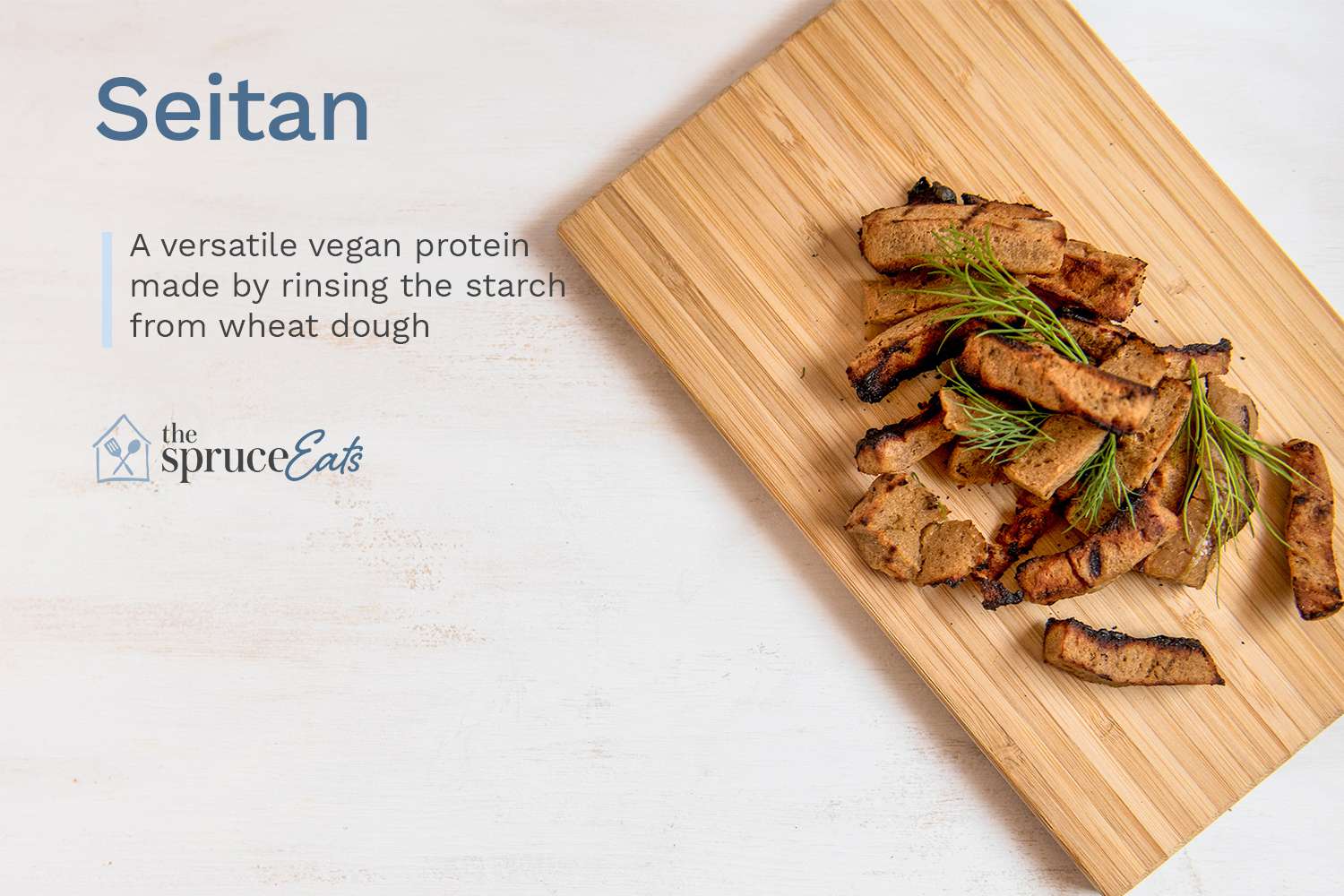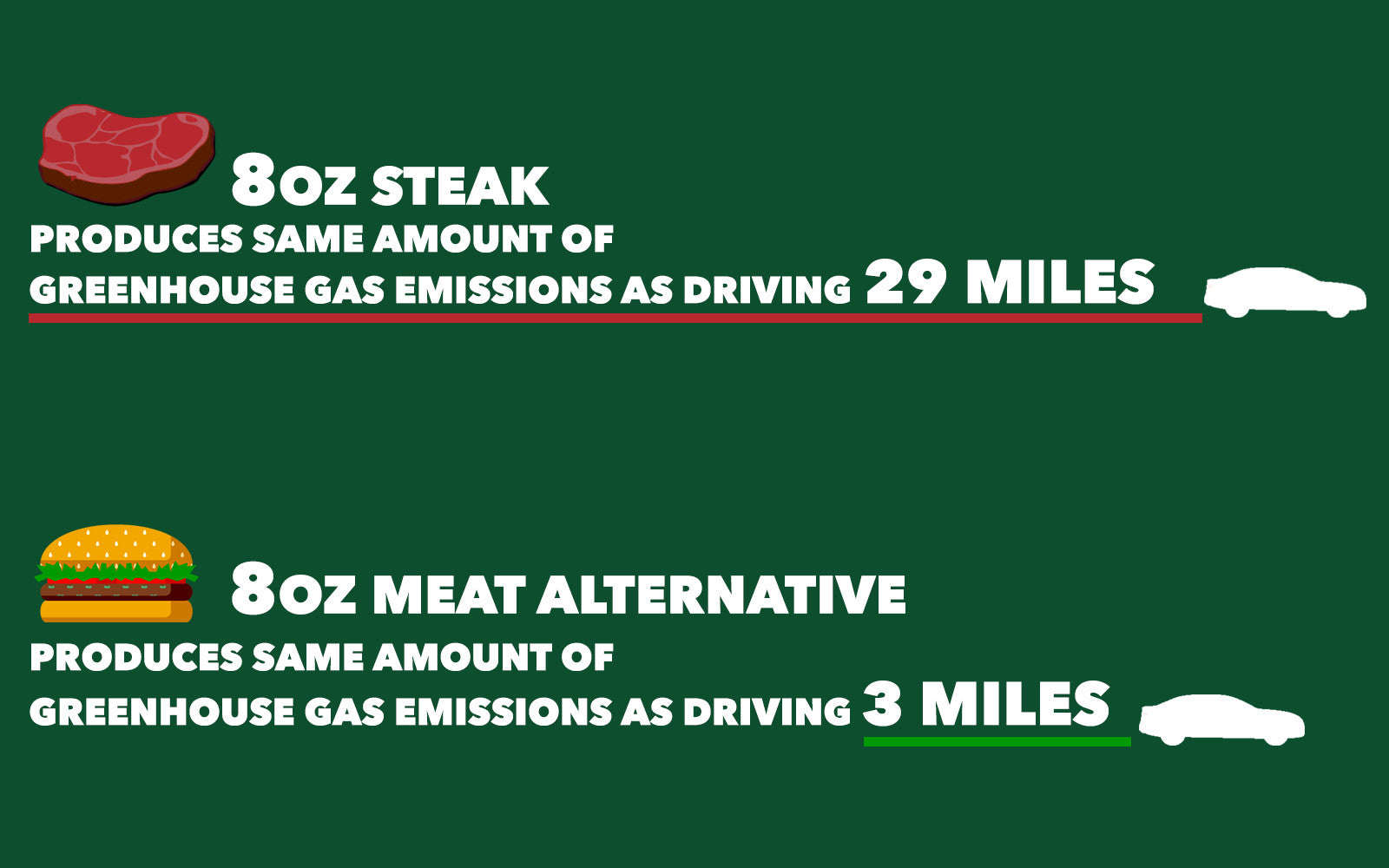How Healthy Are Fake Meats Like Impossible Meat and Beyond Meat, Really?
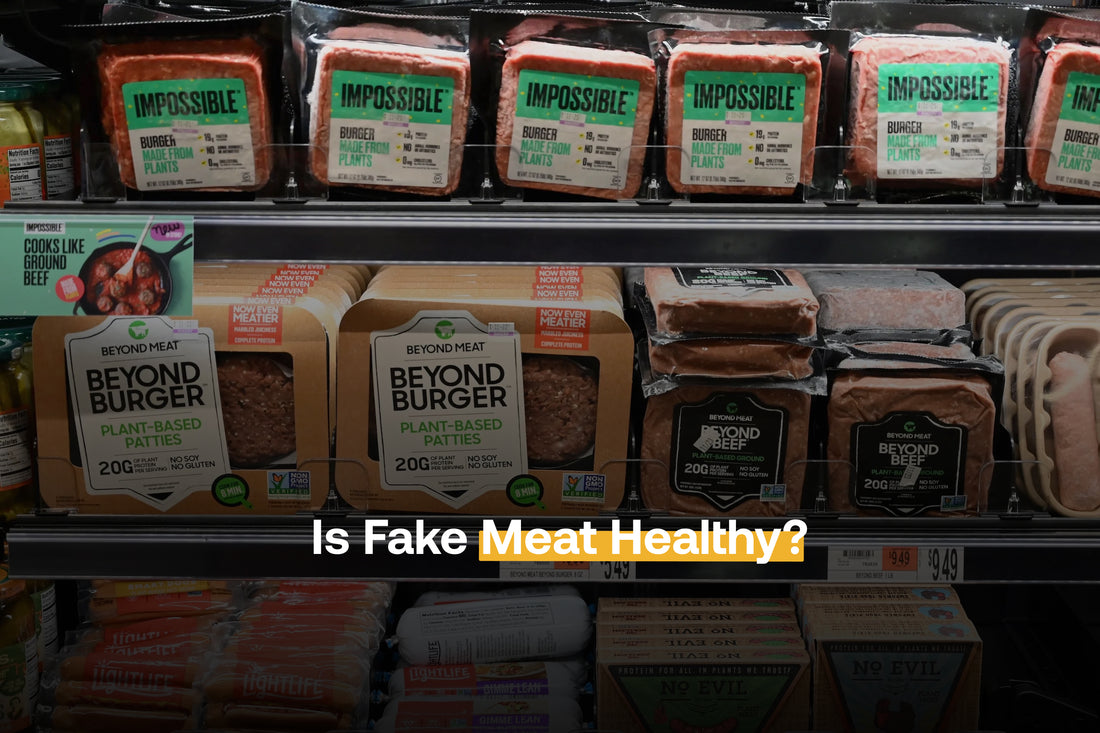
There’s no denying the mountains of evidence out there proving that cutting back on, or eliminating meat altogether from one’s diet, is beneficial for our health and our planet. Whether it’s for moral, health, or environmental reasons, every day more and more people are making the leap to a plant-based lifestyle.
One of the things helping to ease the transition for folks is the ever-increasing variety of alternative meat substitutes available on the market. From tofu to processed meat swaps, it’s easier than ever to scratch the itch for a burger, but are these fake meat product substitutions really that much healthier for us?
Different types of plant-based meat alternatives
Plant-based meat substitutes are definitely not created equally. Here’s a list of some of the most popular meat alternatives and how we get them.
Beyond Meat products
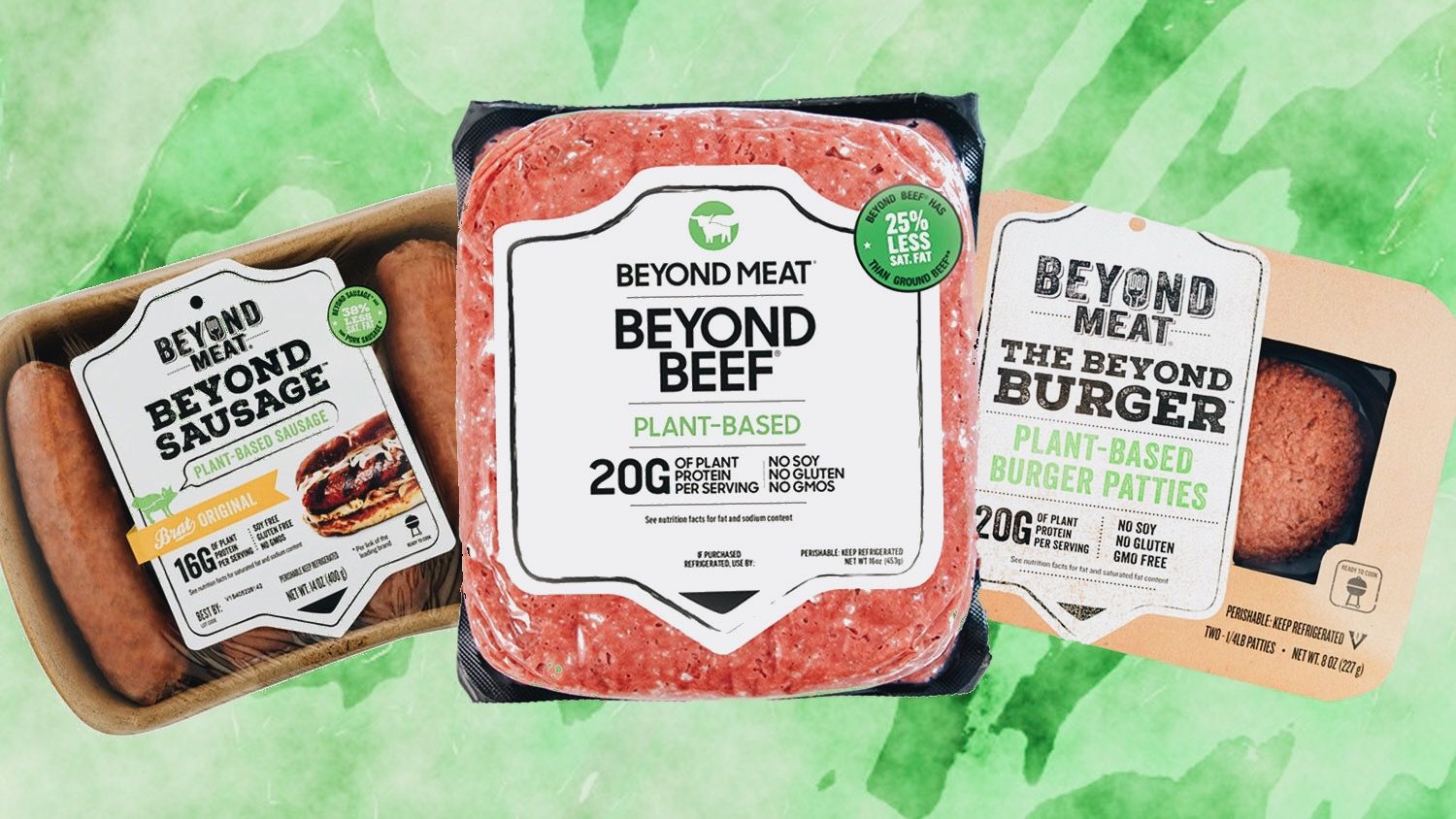
One of the most recognizable alternatives available, Beyond Meat products, such as Beyond Burgers are made from a variety of non-GMO plant proteins including pea, brown rice, mung bean and faba bean. According to their site, they use, “heating, cooling, and pressure [to] create the fibrous texture of meat from plant-based proteins. Then, [they] mix in fats, minerals, fruit and vegetable-based colors, natural flavors, and carbohydrates to replicate the appearance, juiciness, and flavor of meat.
Impossible Burgers

- Another ubiquitous alternative, Impossible Foods consists of soy protein concentrate, coconut oil, sunflower oil, potato protein, methylcellulose, yeast extract, salt, gums, and water and additives, including vitamin B12, zinc, vitamin B6, thiamin (B1) and niacin. The key ingredient that gives an Impossible Burgers from Impossible Foods the taste of meat is called heme, which manufacturers actually make by, “extracting DNA from the roots of soy plants, inserting it into genetically engineered yeast, and then fermenting the yeast”.
If you're craving delicious and healthy plant-based burgers, trash the impossible meat with Whole Harvest's All-American Plant-Based Burger. You won't find any fake meat.
Seitan
- A popular alternative to chicken, Seitan is made by washing wheat flour dough with water, removing starch granules leaving behind wheat gluten. It’s typically kneaded, incorporating flavor via spices, vegetable stock, soy sauce, or nutritional yeast then simmered until firm in vegetable stock. Seitan has a pleasant flavor on its own, but it also absorbs other flavors very well, making it an extremely versatile ingredient.
Soy-based foods
-
Tofu- Tofu has been known as a healthy protein source for centuries, both for its flavor adaptability as well as its low caloric and fat content. It’s made by coagulating soy milk in curds which are then pressed into blocks of varying softness: silken, soft, firm, extra firm, or super firm.

Tip! Check out our Tofu Scramble Recipe
- Tempeh- Tempeh is made from cooked and fermented soybeans. Presented in a type of cake form, tempeh is made by a natural culturing and controlled fermentation process utilizing a tempeh starter. Tempeh is quite firm and is often used as a bacon or sausage substitute.
Jackfruit
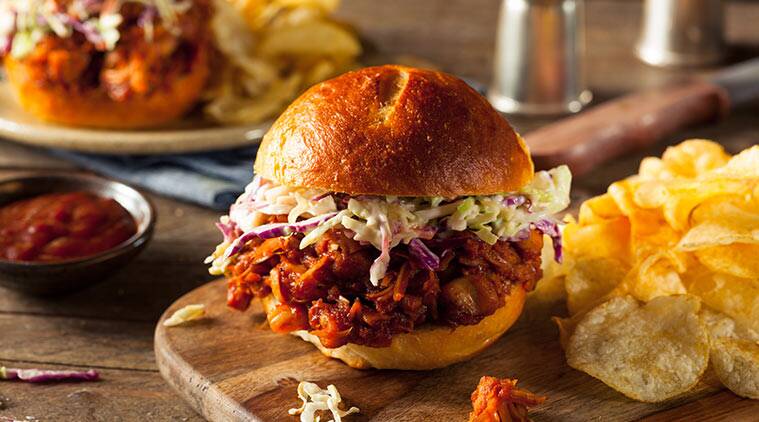
- Jackfruit, also known as the jack tree, is the least processed alternative on this list. Jackfruit is a tropical tree fruit gown in Asia and belongs to the same family as figs, mulberries, and breadfruit. Jackfruit is an amazing WFPB based option for many dishes, especially barbeque. Although it’s not the strongest contender when it comes to protein content, it is naturally high in vitamins, minerals and fiber.
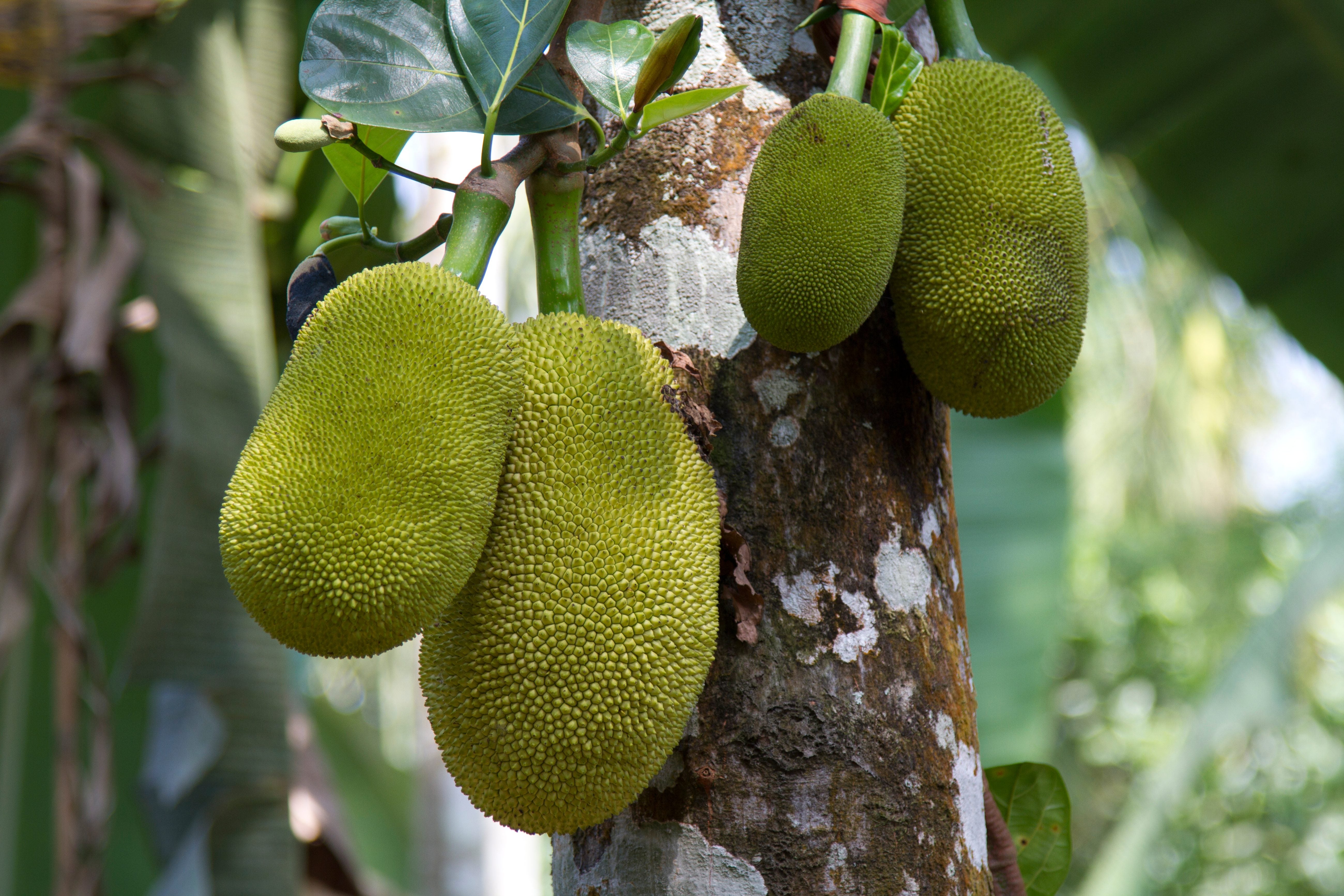
So, lots of options here, but you might be noticing a theme. Many of these options are highly-processed and artificial. We’ll come back to that in a bit…
What are the benefits of fake meats?
There are a multitude of benefits to eating plant-based meat alternatives and they can vary based on individual goals and experience. The most common reasons for eschewing meat are:
- Moral - Perhaps the majority of people fully embracing a plant-based lifestyle do so because eating meat does not align with their personal values. Many feel that animals are intelligent, caring creatures that deserve the same right to life as humans. Not only that, there’s the wide belief that the current practices of the meat industry are tantamount to animal torture and not something they wish to support.
- Environmental - The meat industry is also known to pose a tremendously negative impact on the environment. An article published in 2021 showed that nearly 60% of greenhouse gases emitted from food production come from meat production alone. That’s twice as high as plant-based production’s impact.
- Health conscious - Red meat has been linked to a variety of health complications like heart disease and certain types of cancers. But meat consumption in general has been associated with poor gut health, lower energy and higher cholesterol. Many people are looking to plant-based meat alternatives simply to live longer, healthier lives.
Okay, what about the cons?
- High Saturated Fat Content- Artificial, processed meats are actually surprisingly high in saturated fats. In order to mimic the appearance of meat, fat is added into the product during processing often in the form of coconut or other vegetable oils. That being said, most comparisons have determined they contain less saturated fat than a beef burger patty.
- High Sodium Content- In order to enhance flavor and preserve the products, quite a bit of salt is typically added to artificial meats. While they may have advantages when it comes to overall fat and calories, the high sodium content can make them problematic.
- Highly Processed- This one is pretty obvious, but artificial meats are incredibly One of the things people love about artificial meats is that they so closely resemble real meat. While this can help bridge the mental gap of embracing a plant-based lifestyle, they’re chock full of unnecessary and potentially unhealthy additives and fillers.
What should I keep in mind when shopping for meat alternatives?
As with any processed food, the number one rule when shopping for processed meat alternatives is to read your labels.
- First of all, how much protein does a product contain per serving?
- How much saturated fat, sodium or sugars per serving does each product contain?
- How long is the list of ingredients and how many of them can you actually pronounce?
Easy-to-grab substitutes seem like a no-brainer, but is the overall nutrition picture a good fit for you?
Don’t get fooled by the Plant-Based Labels
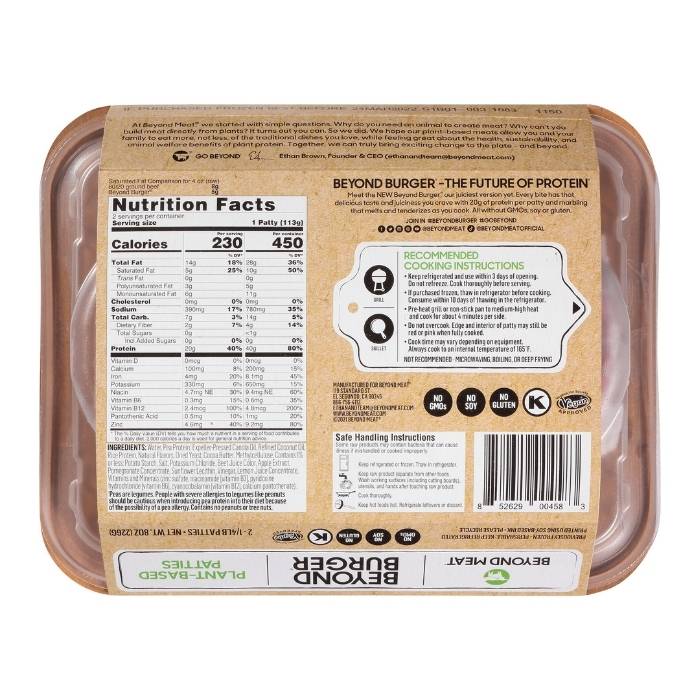
There is a difference between plant-based and whole food plant-based. “Plant-based” has become a bit of an umbrella term manufacturers use to hide ultra-processed. The mere absence of animal products doesn’t mean that a particular item or brand is the healthiest option available.
Truly healthy foods will contain a balance of protein, nutrients and fiber.
Is fake meat actually better for the environment?
One of the main arguments in favor of using artificial meat substitutes is how harmful the meat industry is for the environment. It’s absolutely true that if everyone stopped eating meat, the positive environmental impact would be astounding, but is the production of fake meats actually better for the planet?
The answer actually lies somewhere between yes and no. Beyond Meat burgers, for example, allegedly take 99% less water, 93% less land to create and produce 90% fewer greenhouse gas emissions than a beef burger. Sounds great! However, they are still a processed food made in factories and require a huge amount of plant proteins and other ingredients that are generated with help from Big Agriculture.
As a result, plant-based meats may help reduce effects of the current meat industry but, without significant industrial changes, they still present environmental risks due to current farming practices. That being said, it’s been shown that eliminating beef in favor of plant-based products would cut the number of animals needed for beef production by 2–12 million, shrinking the US food production carbon footprint by 2.5–13.5%.
What is the healthiest plant-based meat alternative?
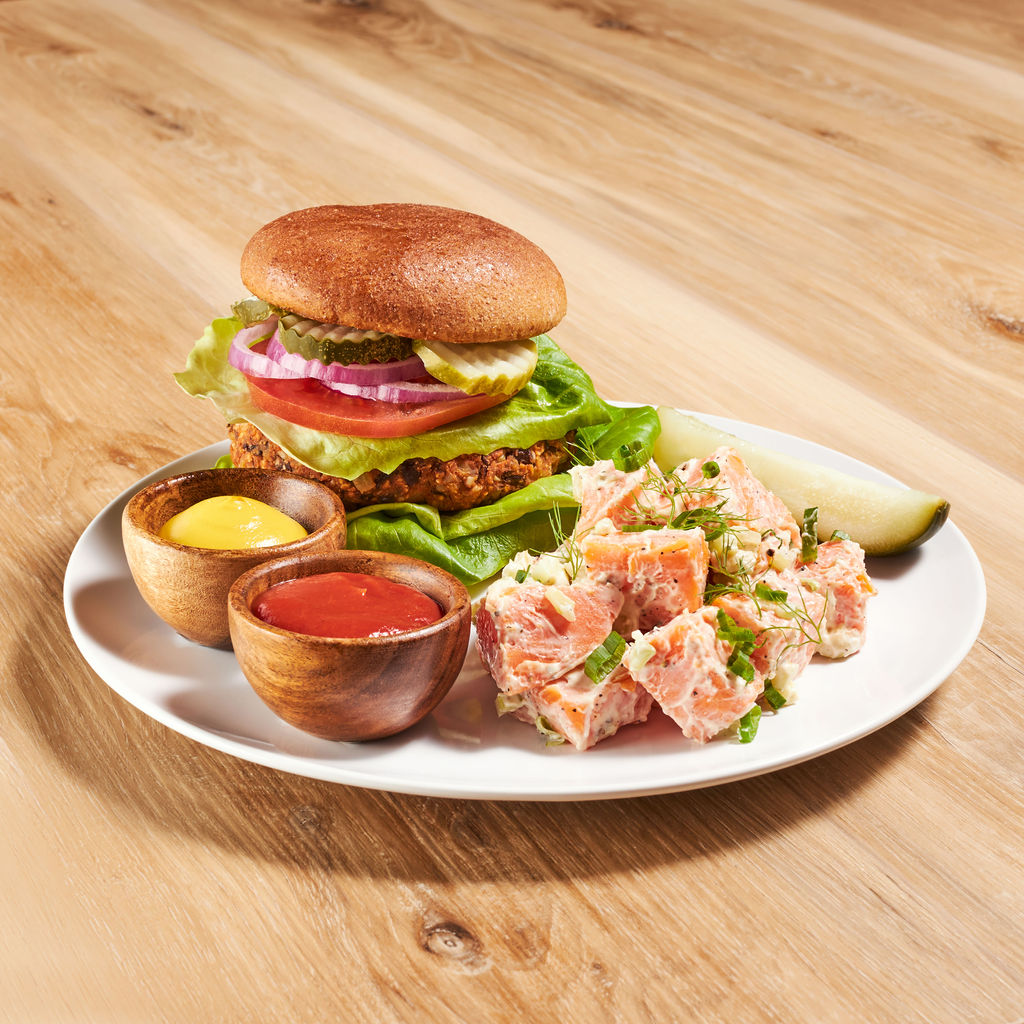
While it’s hard to beat the ease of the artificial meat products like beefless burgers or chik’n nuggets, at the end of the day the healthiest alternatives to meat will be plant-based whole foods.
Look to high-protein grains like quinoa and bulgar. Lentils and various beans and vegetables like eggplant, jackfruit and mushrooms give you a lot of the textures you’re missing. These whole foods are not only minimally-processed, they’re packed with vitamins, minerals, fiber and protein. They’re also versatile! All it takes is a simple marinade or a robust seasoning blend to make an exciting entrée using any of these stars.
For example, you can find many recipes online for making your own whole food plant-based burger patties! Here’s a spectacular collection of whole food plant-based, oil-free burger recipes from our friends over at Forks Over Knives.
The bottom line on fake meat…
Like most things in life, plant-based meat alternatives are best enjoyed in moderation. While they do provide both environmental and health benefits, they are still a highly-processed food.
When eliminating meat, the healthiest practice is to adhere to a whole food plant-based diet and seek out oil-free recipes, but meat alternatives are a good substitute when you’re really craving meaty favorites.
At Whole Harvest, we offer a wide variety of whole food plant-based recipes and meals to choose from delivered right to your door, and many of them have all-natural, healthy, oil-free substitutions for meat in the recipes!
All of our meals are shipped fresh (never frozen) ensuring you receive the highest quality and healthiest food possible.
Whole Harvest is and industry leader in innovation and creativity in oil-free, whole food plant- based cooking. Featuring a mix of reimagined comfort foods and international flavors, we provide our members with incredible variety and vibrant flavors throughout the week.
Best of all, everything is ready to eat! There’s no cooking, just enjoy right away or heat-and-eat. We’re passionate about making it easier for people around the nation to enjoy the benefits of WFPB with absolutely no oil involved.
Whole Harvest is based out of North Kansas City, Missouri and Denver, Colorado, and we ship to almost everywhere in the U.S. for your convenience.
Check out our weekly menu and get started with Whole Harvest today!

